



The way things have been shaping up in the recent couple of months, the holiday season ending today was most likely my last real reprieve from fairly major (not to say time-consuming and persistent) work-related unpleasantness for the foreseeable future. This being the case, I naturally decided to make the most of it: I didn't leave home -- I had to work on the three days between Christmas and New Year's, and anyway, ever since having lived abroad, there's something about spending Christmas at home that I've come to appreciate in particular -- but I took a deep plunge into books, movies and music and all the comfort and joy they afford.
Of course, I binge-read and binge-watched my traditional holiday tales --
Charles Dickens's A Christmas Carol (my review of the Patrick Stewart versions: A "Christmas Carol" for the 21st Century)
Agatha Christie's Hercule Poirot's Christmas (my review of the TV adaptation: Christmas in Shropshire) and The Christmas Pudding
Arthur Conan Doyle's The Blue Carbuncle
Dorothy L. Sayers's The Nine Tailors





-- as well as reading, in the run up to Christmas, Donna Andrews's Duck the Halls (Meg Lanslow, #16),

... and watching (again of course) the German New Year's Eve classic, Dinner for One.
I made some progress, too (albeit not as much as I had hoped) in my current read, Susanna Clarke's Jonathan Strange and Mr. Norell.

Then again, it also came in handy that my mom and my best friend were nice enough to give me books for Christmas --
Ian Rankin's Dark Road
Gail Tsukiyama's The Language of Threads
Ulrich Raulff's Das letzte Jahrhundert der Pferde (The Horses' Last Century -- a nonfiction history of horsemanship and the centuries-old relationship between man and horse)
and Das Hatschepsut-Puzzle (an anthology of historical and scientific essays on Pharaoh Hatshepsut and the conjectures associated with her life and death)
-- to which I swiftly proceeded to add our own Samantha Wilcoxson's (Carpe Librum's) Plantagenet Princess, Tudor Queen, which I'm hoping to make my first "full 2016" read once I'm done with Messrs. Strange and Norell.

In addition, I took advantage of the discounts that the online purveyors of books, DVDs and the like so obligingly tend to offer this time of the year and stocked up on some more comfort watching (mostly) and other favorites:
Downton Abbey, Season 6
Midsomer Murders, Seasons 24 and 25 (U.S. version)
Foyle's War, Season 8 (U.S. version = Season 7 in Britain)
DCI Banks, Aftermath (the prologue) and Season 1
Ian McKellen's Mr. Holmes
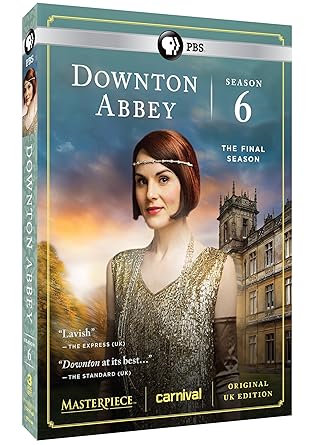
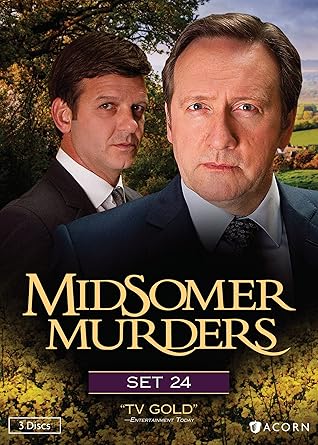
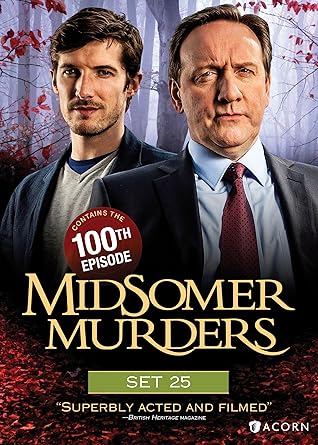
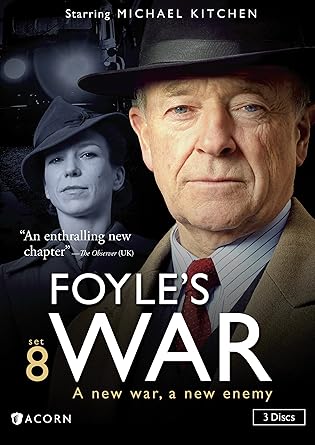
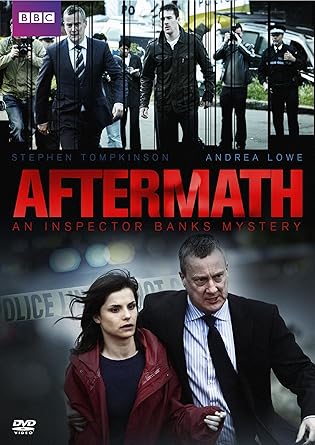
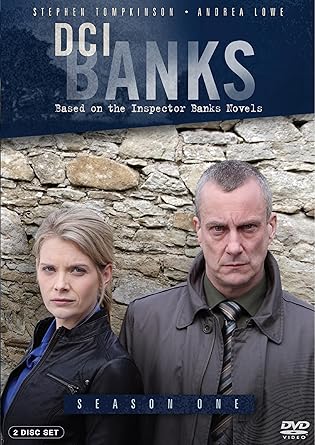
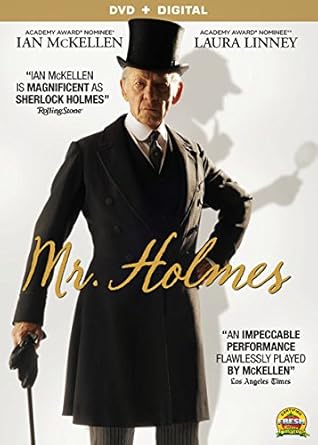
-- and as soon as the DVD of the BBC's most recent production of Agatha Christie's And Then There Were None is available, I'll be adding that to my library as well.

Thanks to Bonn Opera, there was also no shortage (and indeed a great variety) of musical entertainment: We have season tickets, so three productions --
Wolfgang Amadeus Mozart's Così Fan Tutte,
Astor Piazzolla's María de Buenos Aires and
Hector Berlioz's Benvenuto Cellini
were happily provided for that way in the space of less than a month (though since I had initially missed the Berlioz, we had to get tickets for it again, which on the other hand however made for a very nice New Year's back-to-back experience with Mr. Piazzolla's "tango operita").



To these we added a reprise visit to Antonín Dvorák's Rusalka (the Czech folk tale version of The Little Mermaid set to music), which we'd found perfectly charming already when it first premiered in Bonn in 2011, but which we loved even better this time around.

The grand finale of it all was supposed to be the Michael Fassbender movie adaptation of Macbeth, which we (finally) went to see today -- unfortunately that proved rather a disappointment, though luckily the only real disappointment of all my holiday entertainment.

For those who care: It's yet another case of "Hollywood Does Shakespeare" -- or rather, "attempts to do Shakespeare and fails spectacularly" ... A director who either thinks he knows better than the Bard how to tell the story in question or doesn't trust his audience with the source material as actually written and, consequently, f*cks with it in rather major ways, with everything from
*adding stuff that has no earthly business being there to begin with (e.g., a fourth, girl-sized witch whom at the beginning of the movie we see being buried as, presumably, Macbeth's child, and a boy, presumably Macbeth's son, who gets killed in the battle against the rebels at the beginning of the movie, and who later appears to Macbeth to show him the dagger in the "is this a dagger that I see before me" monologue),
* to leaving out major plot elements (e.g., the Porter scene ... and you certainly wouldn't know from watching this movie, either, that Lady M. goes mad at the end and commits suicide, and that she is actually sleepwalking during her final monologue),
* moving around lines at liberty, not to mention changing their context (e.g., having murdered Duncan -- which we actually see, incidentally, in all its gory detail, with Duncan waking up and looking at Macbeth before the dagger plunges into his breast [can you say "clliché"?] -- Macbeth still stands over the corpse when Malcolm looks in and Macbeth (!!) advises him to flee to England),
* actually messing with the Bard's own choice of words (and rhyme, and meter) -- eg., the three witches at the very beginning resolve to meet not, as Shakespeare himself wrote (in perfect rhyme and meter, and with a very definite intent) "on the heath" and "when the battle's lost and won" but ... wait for it ... "on the battlefield",
* paring down the entire play's lines to a random bare minimum anyway;
* pretty pictures of Scottish highland scenery (mostly Island of Skye, several 100 miles west of where the play is actually set) with battle scenes straight out of Braveheart, war paint and all (I defer to Troy's judgment on the fighting scenes and the claymores; to me, the swords at least didn't look entirely authentic -- and yes, I have seen the real thing),
* architectural anachronisms galore -- to top it off, with Bamburgh Castle (Northumberland (!!) and right on the seashore) standing in for what's presumably supposed to be Glamis, Cawdor and Dunsinane rolled into one (neither of which is on the sea, nor even close to the sea to afford views of it),
* not a single cinematic cliché even remotely associated with Scotland and / or the Middle Ages left out,
* nor, on the other hand, a single original idea on display ... I mean, even having the witches appear as "wise women" who might just have come from a nearby village and who induce Macbeth's visions by hallucinogens may have been new and revolutionary in the 1970s RSC / Trevor Nunn / Ian McKellen / Judi Dench production, but that was 40 years ago, for crying out loud, and it's been done plenty of times on other stages since then ...
I guess you get the picture. But, as I said, the only disappointment in a long list of great holiday season entertainment, so it's all good! :)


Now it's back into the trenches for my own battle against the Dark Side ...
I'll try to show my face here every so often nevertheless, but I can't promise it will be with any sort of frequency during the next couple of months. Well, we'll see. In any event, I'll be thinking of you all regardless, even when I'm not here!

I read this book because it was one of the July/August group reads for the Into the Forest Goodreads group, and a copy was readily available on Bookmooch (where I have an abundance of credits). The intricate writing and atmospheric prose had me thinking it might be one of those books that I was pleasantly surprised to have read, even if I wouldn't have picked it up on my own. But I unfortunately became disenchanted with it before hitting the halfway point.
I did like the gloomy, unusual setting -- a Russian forest where various spiritual creatures and ghosts abounded. I also thought the characters were rendered well, and the story had some interesting things to say about the power of wishes and the complications of the love between a parent and a child, fraught as it is with expectation. But everything in this book seemed to take about three times longer than it needed to -- first the drawn-out journey into the forest, then dozens of pages before the ghost even appears, then an intermittent tease about what exactly her appearance meant, as she dodges in and out of the story along with various other creatures both nefarious and friendly. I think if this book had been half as long, it would have been twice as good.
Although Cherryh's writing is lush and evocative, its meandering style sometimes made it hard to follow. I found myself having to reread sections often to orient myself to what was happening; although she does not "head hop," she often does not make it clear early in a scene whose point of view we are in, which doesn't help with the whole needing to reread for clarity issue. I don't regret giving her a try, but I don't think I'll be reading more of her work.
Three new books waiting to be acknowledged and then put away.
Dark Life by Kat Falls - I saw a news segment about this book when it was first published and immediately became interested, mostly because I am fascinated by the idea of living beneath the ocean. I even went to an underwater hotel for my honeymoon. Truth be told, I wanted to read this book while I was under water, but I was too nervous to submerge a library book, and it hasn't become available via Paperbackswap until now.
Say What You Will by Cammie McGovern - I got this as an ARC from my dear bookseller friend (every time that group of friends gets together, I come home with more books!) She recommended it, and a review in School Library Journal also aroused my interest.
Rusalka by C.J. Cherryh - This is one of the July/August group reads for Into the Forest, a Goodreads group I belong to for lovers of myths and fairy tales. I snatched it up via Bookmooch.